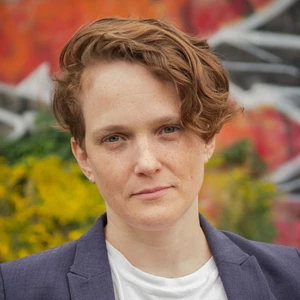

Ethical Issues in Artificial Intelligence: 2023 Annual Library Lecture Series
4 October 2023 - 26 October 2023
EVENT DESCRIPTION
Each year, the Rotman Institute of Philosophy organizes a public lecture series co-sponsored with the London Public Library and the Department of Philosophy. The theme for this year’s lecture series is Ethical Issues in Artificial Intelligence.
Abstract
Questions about Artificial Intelligence and its appropriate use overwhelm recent discourse about technology. What is Chat GPT? Is AI ethical? Can it ever be “trustworthy”? How do we, or how should we understand and speak about AI?
Please join us in welcoming Professor Luke Stark (UWO), Professor Joanna Redden (UWO), Professor Catherine Stinson (Queen’s), and Panelists Chris Gerdes, Susie Lindsay, Vanessa Thomas, and Annette Zimmerman (Moderator: Jason Miller) to the London Public Library for this year’s series: Ethical Issues in Aritificial Intelligence.
All lectures will be held on Thursdays in October, from 7:00 – 8:30 pm weekly.
Hosted at the Central Library, 251 Dundas St, London, ON. Lectures 1 – 3 will take place in the Lawson Room. Lecture 4 will take place in the Stevenson & Hunt Room.
2 hours free validated parking in Citi Plaza during Library hours
Attendance is free and open to the general public. Advance registration is not necessary.
Animation and Artificial Intelligence, or How and Why ChatGPT is Like Mickey Mouse
Lawson Room, Central Library
Thursday, October 5, 2023 | 7:00 – 8:30 pm
Animation increasingly defines the cultural contours of the twenty-first century and is broadly used across many forms of digital media. More than just cartooning, puppetry, or CGI, animation is a paradigm involving the projection of qualities perceived as human such as power, agency, will, and personality outside of the self and onto objects in the the environment. In this talk, I argue ChatGPT and similar chatbots powered by Large Language Models (LLMs) can be best understood as animated characters, and that other characteristics of animation—including reliance on stereotypes, obfuscation of human labor, and manipulation of an audience’s emotions—can help us both analyze and respond appropriately to interactive AI technologies and the hyperbolic claims of their promoters.
SPEAKER PROFILE

Luke Stark is an Assistant Professor in the Faculty of Information & Media Studies (FIMS) at Western University in London, Ontario. He researches the ethical, historical, and social impacts of computational technologies like artificial intelligence (AI) systems powered by techniques like machine learning (ML). He is particularly animated by how these technologies mediate social and emotional expression, make inferences about people, and are reshaping, for better and worse, our relationships to collective action, our selves, and each other.
UPDATE: CANCELLED
What is ChatGPT Made of?
Lawson Room, Central Library
Thursday, October 12, 2023 | 7:00 – 8:30 pm
Artificial Intelligence (AI) has been a regular feature in the news recently, mainly because of advances in “Generative AI” that have been translated into free consumer products like ChatGPT and Dall-E. Anyone with an internet connection can now ask AI to write an essay or create an image with the content of their choice. Despite AI’s sudden shift into public consciousness on the product side, how these products work remains specialized knowledge held by computer scientists, and a veil of mythologizing keeps the public convinced that they wouldn’t understand.
In this talk we will look under the hood of Generative AI to see how products like ChatGPT and DALL-E are built. We will look at the data used, the copyright violations involved, the energy resources, their environmental effects, the low-wage labour that supports the process, and the social impacts that could result from widespread use. We will also look at how the tools work, to illuminate some ways they tend to fail, and the uses for which they are and are not well suited.
SPEAKER PROFILE
 Catherine Stinson is an Assistant Professor in the Department of Philosophy & Queen’s National Scholar in Philosophical Implications of Artificial Intelligence at Queen’s Univeristy in Kingston, Ontario. She received a PhD from the University of Pittsburgh in History & Philosophy of Science, and a MSc in Computer Science from the University of Toronto. She has published in philosophy of neuroscience (attention, mechanistic explanation), philosophy of psychiatry (anorexia, classification of disorders), philosophy of artificial intelligence (explanation in artificial neural networks, neo-phrenology), and tech policy (data governance, terms of service agreements, AI ethics education). Her current research interests include algorithmic bias in recommendation and search, regulation of social media platforms, how diversity affects research, the metaphysics of scientific models, the medicalization of gender, and data science for anti-racist advocacy.
Catherine Stinson is an Assistant Professor in the Department of Philosophy & Queen’s National Scholar in Philosophical Implications of Artificial Intelligence at Queen’s Univeristy in Kingston, Ontario. She received a PhD from the University of Pittsburgh in History & Philosophy of Science, and a MSc in Computer Science from the University of Toronto. She has published in philosophy of neuroscience (attention, mechanistic explanation), philosophy of psychiatry (anorexia, classification of disorders), philosophy of artificial intelligence (explanation in artificial neural networks, neo-phrenology), and tech policy (data governance, terms of service agreements, AI ethics education). Her current research interests include algorithmic bias in recommendation and search, regulation of social media platforms, how diversity affects research, the metaphysics of scientific models, the medicalization of gender, and data science for anti-racist advocacy.
From Data Harms to Data Justice: Why We all Have a Role to Play in Building Better Futures
Lawson Room, Central Library
Thursday, October 19, 2023 | 7:00 – 8:30 pm
At the Data Justice Lab we’ve been keeping a record of how people are being negatively affected by the increasing use of data systems all around us. We have also been researching the important work being done to try to prevent data harms. This talk provides an overview of how contemporary data practices are leading to harm as well as the social justice work being done to try to ensure datafied futures where we can all thrive.
SPEAKER PROFILE
 Joanna Redden is an Associate Professor in the Faculty of Information & Media Studies (FIMS) at Western University in London, Ontario. Her research combines interests in datafication, politics, governance and social justice. She is co-director of the Data Justice Lab. She is currently working on projects that involve: a) mapping and analyzing the social and political implications of increasing government uses of predictive and automated data systems, b) learning from data harms and those trying to redress these harms and c) working toward greater civic participation in our datafied societies.
Joanna Redden is an Associate Professor in the Faculty of Information & Media Studies (FIMS) at Western University in London, Ontario. Her research combines interests in datafication, politics, governance and social justice. She is co-director of the Data Justice Lab. She is currently working on projects that involve: a) mapping and analyzing the social and political implications of increasing government uses of predictive and automated data systems, b) learning from data harms and those trying to redress these harms and c) working toward greater civic participation in our datafied societies.
She is co-author of Data Justice (Sage, 2022), the author of The Mediation of Poverty: The News, New Media and Politics (Lexington, 2014) and co-editor of Compromised Data: From Social Media to Big Data (Bloomsbury, 2015). She has published articles in academic journals such as Big Data & Society and popular sites like Scientific American. She has contributed chapters to various edited collections. Her research has been funded by the Open Society Foundations, Carnegie UK Trust, the Nuffield Foundation, the Social Sciences and Humanities Research Council of Canada and the Goldsmiths Leverhulme Media Research Centre.
Panel Discussion: Can We Enhance AI ‘Trustworthiness’ Through Regulation?
Stevenson & Hunt Room, Central Library
Thursday, October 26, 2023 | 7:00 – 8:30 pm
Can AI’s design and use be regulated to make it more “trustworthy” (assuming AI can even be trustworthy, which is a subject of some philosophical debate)? Discussions about the need to regulate AI are happening furiously right now. High-profile cases involve the regulation of automated vehicles and generative AI such as ChatGPT. This public panel will focus on how AI could and/or should be controlled through regulation.
PANELIST PROFILES
- Susie Lindsay, Counsel at the Law Commission of Ontario, leader of the LCO AI and the Civil Justice System project and its joint initiative on AI and Human Rights with the Canadian Human Rights Commission.
- Vanessa Thomas, Senior Advisor of Technology Review with the National Security and Intelligence Review Agency’s Technology Directorate, Government of Canada
- Anthony D’Amato
MODERATOR
- Jason Millar, Assistant Professor of Engineering and Philosophy, Canada Research Chair in Ethical Engineering of Artificial Intelligence and Robotics, Ottawa University
This event series is co-sponsored by the London Public Library and the Department of Philosophy.
Events
Upcoming Events | Event Videos | Past Events | Conferences & Workshops | Public Events
